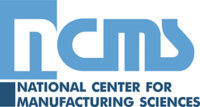CTMA Project #: 140725
Problem: Currently the nation has limited economically feasible options for alternative fuel vehicles and equipment directly from domestic original equipment manufacturers. There are, however, options available as aftermarket conversions that have proven to be very viable options. One such readily available alternative fuel is propane. The Department of Defense has volunteered to conduct demonstrations at various military installations throughout the nation.
Benefit: Further development of viable alternative fuel solutions is critical to meeting the nation’s energy demands while reducing carbon emissions and dependence on foreign oil.
Solution/Approach: For a fleet to determine which solution is best for its needs, fleet management must understand its vehicle needs and duty cycle to ensure the solution provides beneficial results. This initiative will focus on evaluating the utility, feasibility, and maintainability of utilizing propane as a power source in wheeled vehicles and related equipment. This will be accomplished by converting current vehicles and equipment at the target bases to propane, tracking their performance during an evaluation period, and converting the vehicles back to their initial state at the end of the evaluation period. It will also include the additional collection of seasonal data from the initial pilot program to develop a business case analysis on the viability of utilizing liquid propane engine technology in medium-duty truck fleets.
Impact on Warfighter:
- Cost savings ($1.50 vs. $3.50+ for unleaded gas or diesel)
- Cleaner reducing greenhouse gases/emissions
- Sustainable and readily available
- Less abuse to engines
- Extended service cycles
DOD Participation:
- U.S. Marine Corps (Camp Pendleton)
- U.S. Air Force (Dover, Keesler)
- Southwest Region Fleet Transportation (SWRFT) – Bridgeport
Industry Participation:
- Blossman
- Petroleum Education & Research Council (PERC)
- Troika Solutions, LLC
- NCMS
Benefit Area(s):
- Cost savings
- Repair turn-around time
- Maintenance avoidance and reliability
Focus Area:
- Energy, environmental, health, and safety




